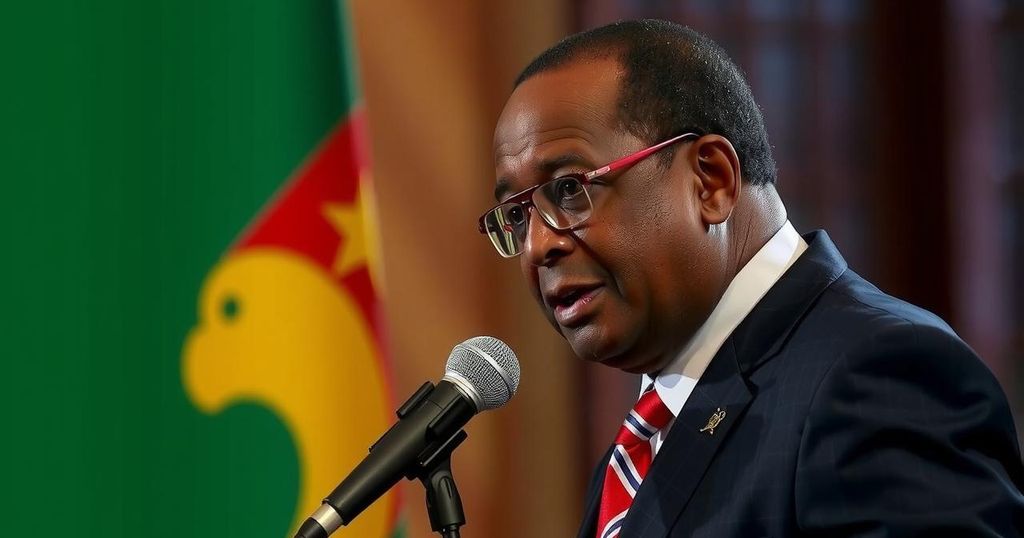Zimbabwe Accused of Electoral Interference in Southern Africa

Zimbabwe’s Zanu-PF party faces allegations of electoral interference in neighboring countries, with accusations from opposition groups in Botswana, Namibia, and Mozambique regarding its involvement in local elections. The ruling party’s collaborations with regional allies and its assertion of neo-colonial combativeness form the crux of these controversies. Zanu-PF denies any wrongdoing, advocating for the autonomy of local political parties to garner electoral support independently.
Zimbabwe is facing accusations of interference in the domestic electoral processes of neighboring countries, particularly from opposition movements in Botswana, Namibia, and Mozambique. The ruling party in Zimbabwe, Zanu-PF, has established close affiliations with ruling parties in the region while asserting its commitment to combating neo-colonial influences mounting in Southern Africa. In preparation for the contentious October 9 elections in Mozambique, Zanu-PF dispatched campaign teams to support the Front for the Liberation of Mozambique (Frelimo), whose latest leader, Daniel Chapo, has now assumed office. Frelimo was permitted to organize campaign rallies across Zimbabwe targeting those in the diaspora, a move marked by reports of Zanu-PF members voting in the recent Mozambique elections under the diaspora voting system. In Botswana, Zanu-PF officials were seen campaigning alongside representatives from the Botswana Democratic Party (BDP) in the lead-up to elections scheduled for October 30. Meanwhile, protests by opposition groups in Namibia against a South African company’s contract to print ballot papers for the November 27 elections have surfaced, highlighting connections to associates of Zimbabwean President Emmerson Mnangagwa. Last August, Zanu-PF hosted a conference for liberation parties within the Southern African Development Community (SADC) to rally for collective action against perceived neo-colonial threats. Although many of these parties chose not to participate in Zimbabwe’s disputed election earlier this year, Zanu-PF’s visibility in regional elections remains prevalent. Former Botswana President Ian Khama has expressed concerns regarding Zimbabwe’s influence, stating, “Remember (President) Mnangagwa went on national television and promised to help (President) Masisi win elections. The ruling party is preparing to rig the general election by using Zimbabweans to vote here in Botswana.” Additionally, Job Sikhala, a leading opposition figure in Zimbabwe, remarked that Zanu-PF’s overt attempt to influence political outcomes in regions such as Botswana is a severe violation of sovereignty. Despite these allegations, Nick Mangwana, spokesperson for the Zimbabwean government, has refuted claims of electoral interference, asserting that Zimbabwe only engages with democratically elected governments and participates in regional electoral processes under official frameworks. He reiterated that, “we certainly have no dog in the fights,” urging that local political parties should strive to gain the confidence of their voters rather than attributing their failures to external influences. Zimbabwe’s contentious position in regional politics has also been illustrated in its response towards its neighbor, Zambia, where it accused Zambian President Hakainde Hichilema of intervening in Zimbabwe’s electoral affairs earlier this year. Zanu-PF’s latest initiatives, positioning themselves in the operations of neighboring countries’ elections, raise substantial questions about the integrity of sovereign electoral practices in the region.
The political landscape in Southern Africa has been characterized by a web of alliances and tensions among various ruling and opposition parties. Zanu-PF’s presence in neighboring countries’ electoral campaigns signals a bid to establish a supportive regional network among liberation movements, despite backlash from opposition groups in Botswana, Namibia, and Mozambique. Historically, these liberation parties have engaged in mutual support; however, recent events reveal a growing apprehension regarding unauthorized influence in electoral affairs, exacerbated by Zimbabwe’s controversial approaches and assertions of clout within SADC.
In summary, Zimbabwe’s alleged interference in the electoral processes of neighboring countries has sparked significant controversy within the region. Accusations from opposition figures in Botswana, Namibia, and Mozambique suggest that Zanu-PF is attempting to extend its influence beyond its borders, particularly during crucial electoral periods. Despite the denials from Zimbabwean officials who emphasize their unyielding support for sovereign governments, the situation raises critical questions about the future of regional political dynamics and the integrity of national elections in Southern Africa.
Original Source: www.theeastafrican.co.ke






